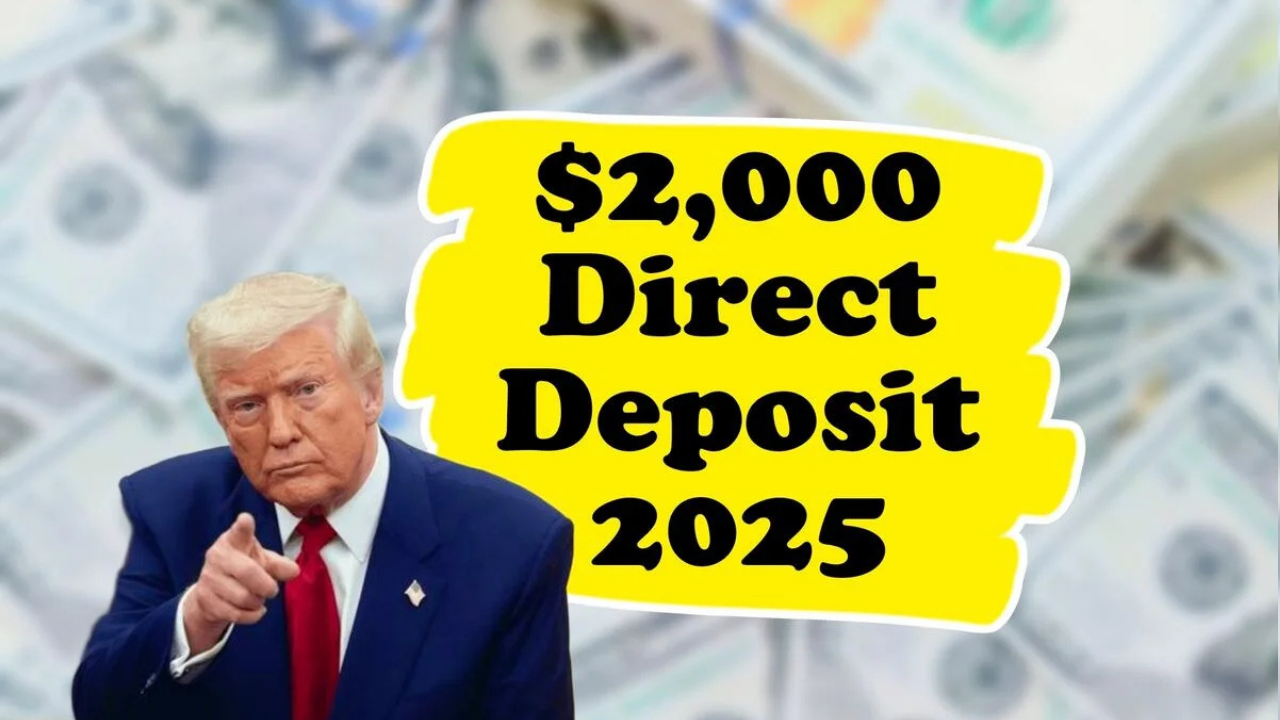$2,000 Direct Deposit :In a welcome move for millions of Americans struggling with inflation and rising living costs, the Internal Revenue Service (IRS) has officially approved $2,000 direct deposit payments as part of a new round of financial relief. The initiative aims to provide assistance to low- and moderate-income families, retirees, and those facing financial hardship through 2025.
As food, gas, and housing prices continue to rise, this new payment brings a ray of hope. The IRS has begun verifying eligibility criteria and payment schedules to ensure the funds reach those who need them most in the coming weeks.
Why the $2,000 Direct Deposit Is Important
The past few years have been difficult for many Americans. From job losses during the pandemic to the continued impact of high inflation, families are still struggling financially. The $2,000 direct deposit is designed to stimulate the economy and provide relief to families facing persistent financial stress.
Unlike previous stimulus rounds, this payment focuses on helping those most affected by inflation—specifically, low-income individuals, seniors relying on Social Security, and taxpayers with dependents.
Who Is Eligible for the $2,000 Payment?
The IRS has outlined specific eligibility rules to ensure the funds are distributed fairly and efficiently. You may qualify if you meet the following criteria:
-
Income Requirements:
-
Single filers earning below $75,000 per year.
-
Heads of household earning below $112,500 per year.
-
Married couples filing jointly earning below $150,000 per year.
Those earning above these thresholds may receive a reduced payment depending on their adjusted gross income (AGI).
-
-
Tax Filing:
You must have filed your 2023 or 2024 federal income tax return to be eligible. This ensures that the IRS has the most up-to-date information to process your direct deposit. -
Social Security and Veterans Benefits Recipients:
Those receiving Social Security (SSI, SSDI) or VA benefits are also eligible, even if they did not file taxes, provided their income is within the eligible limits. -
Citizenship Status:
Only U.S. citizens and permanent residents with valid Social Security numbers qualify for the payment.
When will the $2,000 direct deposit be sent?
The IRS hasn’t released an exact date, but payments are expected to begin by the end of October 2025. The program generally works like this:
- Direct Deposit:
People whose banking information is on file with the IRS will receive funds directly into their accounts first. This is the fastest and most secure way to receive payments.
- Paper Checks and Debit Cards:
People who don’t have a direct deposit system will receive payments via a mailed check or prepaid debit card, which may take up to 3 weeks to arrive.
If you received your previous stimulus or tax refund via direct deposit, you don’t need to do anything—the IRS will automatically use the same details.
What to do if you haven’t filed your taxes yet
If you haven’t filed your 2023 tax return yet, you should do so as soon as possible to ensure eligibility and avoid delays. The IRS uses tax records to verify income and dependents, which determines how much you’ll receive.
People who receive Social Security or VA benefits don’t need to file a tax return—the IRS will use existing records from those agencies.
How to Check Your Payment Status
Once this feature is operational, the IRS is expected to reactivate the “Get My Payment” online tool, where taxpayers can check:
- Whether their payment has been processed
- Delivery method (direct deposit or mail)
- Expected date of receipt
Why this payment Could be a Game-Changer
For many Americans, this $2,000 payment isn’t just another deposit—it’s a lifeline. With the rising costs of rent, groceries, and healthcare, direct deposits can help people meet essential expenses, reduce debt, or pay bills before the holiday season.
Experts believe this round of payments will boost consumer spending and provide much-needed economic momentum for families across the country during this critical time.
FAQs
1. Do I need to apply for the $2,000 payment?
No. The IRS automatically sends payments to eligible individuals based on tax records and benefit information.
2. Will this payment affect my Social Security or unemployment benefits?
No, the $2,000 direct deposit is not considered taxable income and will not impact your existing benefits.
3. What if I changed my bank account or address?
You should update your information with the IRS or SSA immediately to ensure your payment goes to the correct location.
4. Can non-filers get the payment?
Yes, if you receive Social Security or VA benefits, you’ll be included automatically even if you didn’t file taxes.
5. When should I expect my deposit?
Most eligible recipients will see funds deposited by the end of October 2025, with mailed checks following soon after.

